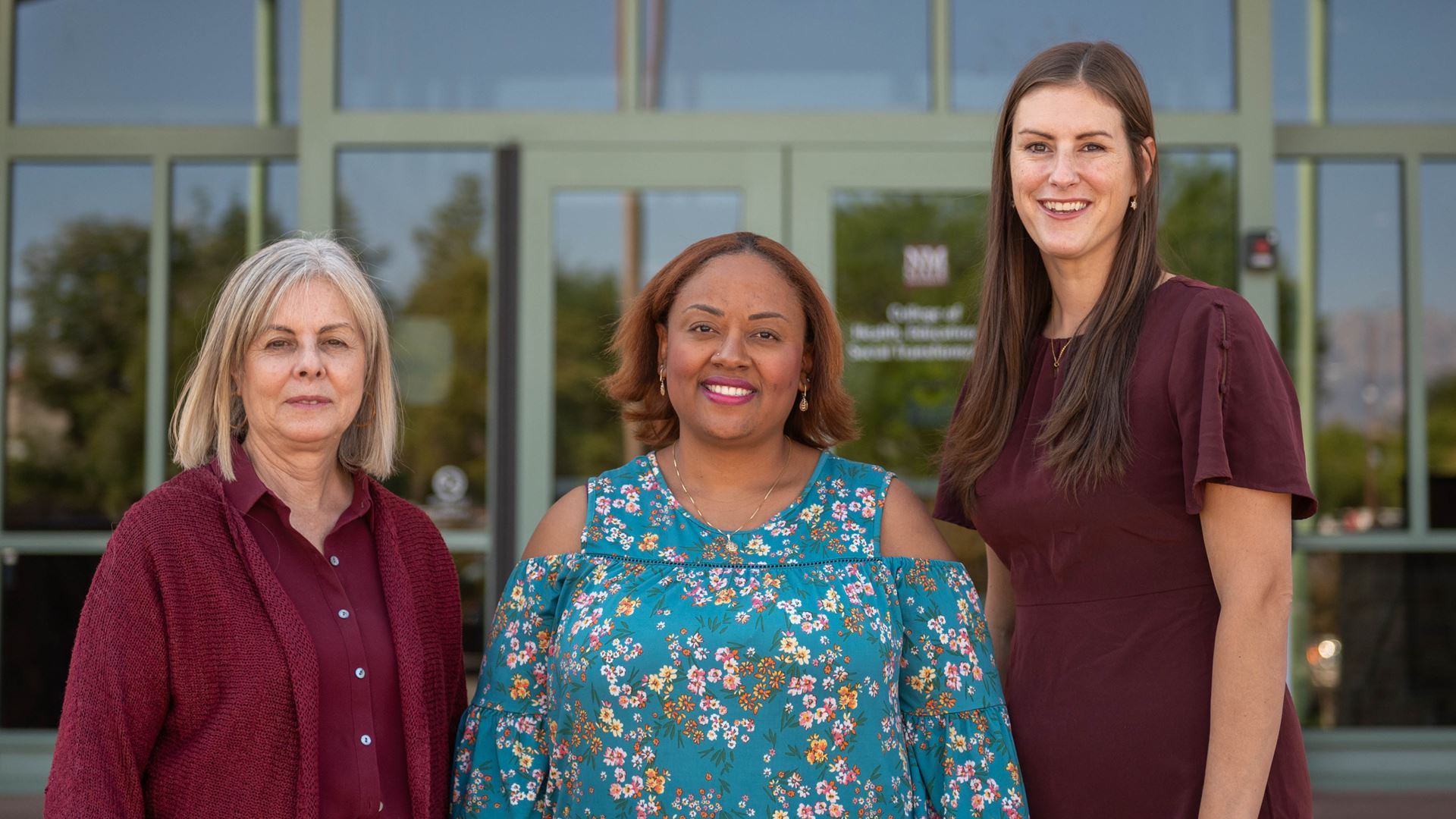A program in New Mexico State University’s College of Health, Education and Social Transformation recently received a federal grant to recruit and train students from diverse backgrounds to become highly qualified early intervention providers.
The program, named Project RISE, will receive $1.25 million over five years from the Office of Special Education Programs in the United States Department of Education. The grant will fund two cohorts totaling 24 scholars from underrepresented backgrounds – including race, language, disability and sexual orientation – to serve infants, toddlers and their families in New Mexico.
The cohort members will be trained through the NMSU Early Childhood Education program in the School of Teacher Preparation, Administration and Leadership to help infants and toddlers with disabilities, or who are at risk for disabilities. The grant will assist in the creation of a multicultural early intervention concentration within the Early Childhood Education program.
“This is very much needed,” said College of HEST Assistant Professor Monique Matute-Chavarria, one of the principal investigators for the grant, along with Professor Anita Hernandez and Assistant Professor Sarah Wiegand. “We have a huge shortage of early interventionists specifically trained to meet the needs of our diverse populations in New Mexico.”
A 2022 cost study for the program revealed a 16% turnover rate for all Family Infant Toddler program early intervention providers during the 2022 fiscal year. There was a turnover rate of 18% for developmental specialists and a turnover rate of 29% for service coordinators.
In a tribal needs assessment conducted by New Mexico’s Early Childhood Education and Care Department in 2022, results indicated that tribes, pueblos and nations in New Mexico experience challenges recruiting and retaining early intervention providers who are highly qualified to meet their needs.
In New Mexico, there is no early childhood special education certification. The state recommends that a developmental specialist or service coordinator must have a degree in one of 18 related fields, including special education, psychology, music education or early childhood education. Hiring agencies can provide a one-year exemption if providers don’t have a degree in a related field.
Matute-Chavarria said although providers have knowledge about their specific degrees, they often lack knowledge pertaining to serving infants and toddlers with disabilities, and have not built service delivery skills such as coaching families, providing individualized instruction and embedding instruction within the natural environment.
“This is critical when working with infants and toddlers with disabilities and their families,” Matute-Chavarria said. “In order to serve New Mexico’s infants and toddlers with disabilities and their families, it is critical that we prepare providers from diverse backgrounds.”
Matute-Chavarria said Project RISE is committed to recruiting and preparing early intervention providers who come from underrepresented groups and who are multilingual, and preparing them to use culturally sustaining practices in early intervention.
The OSEP Personnel Development to Improve Services and Results for Children with Disabilities Program awards increase the number of well-prepared, diverse and effective personnel serving children with disabilities, including early intervention practitioners; teachers; related services providers; administrators leading early intervention programs, schools, or local and state agencies; and university faculty who are preparing future generations of personnel to serve children with disabilities.
-30-
PHOTO CAPTION: The Project RISE program in New Mexico State University’s College of Health, Education and Social Transformation will receive a $1.25 million federal grant over five years to recruit and train students from diverse backgrounds to become highly qualified early intervention providers. From left are the grant’s co-principal investigators Professor Anita Hernandez and assistant professors Monique Matute-Chavarria and Sarah Wiegand. (NMSU photo by Josh Bachman)
IMAGE DESCRIPTION: Three women standing in front of a building entrance.

